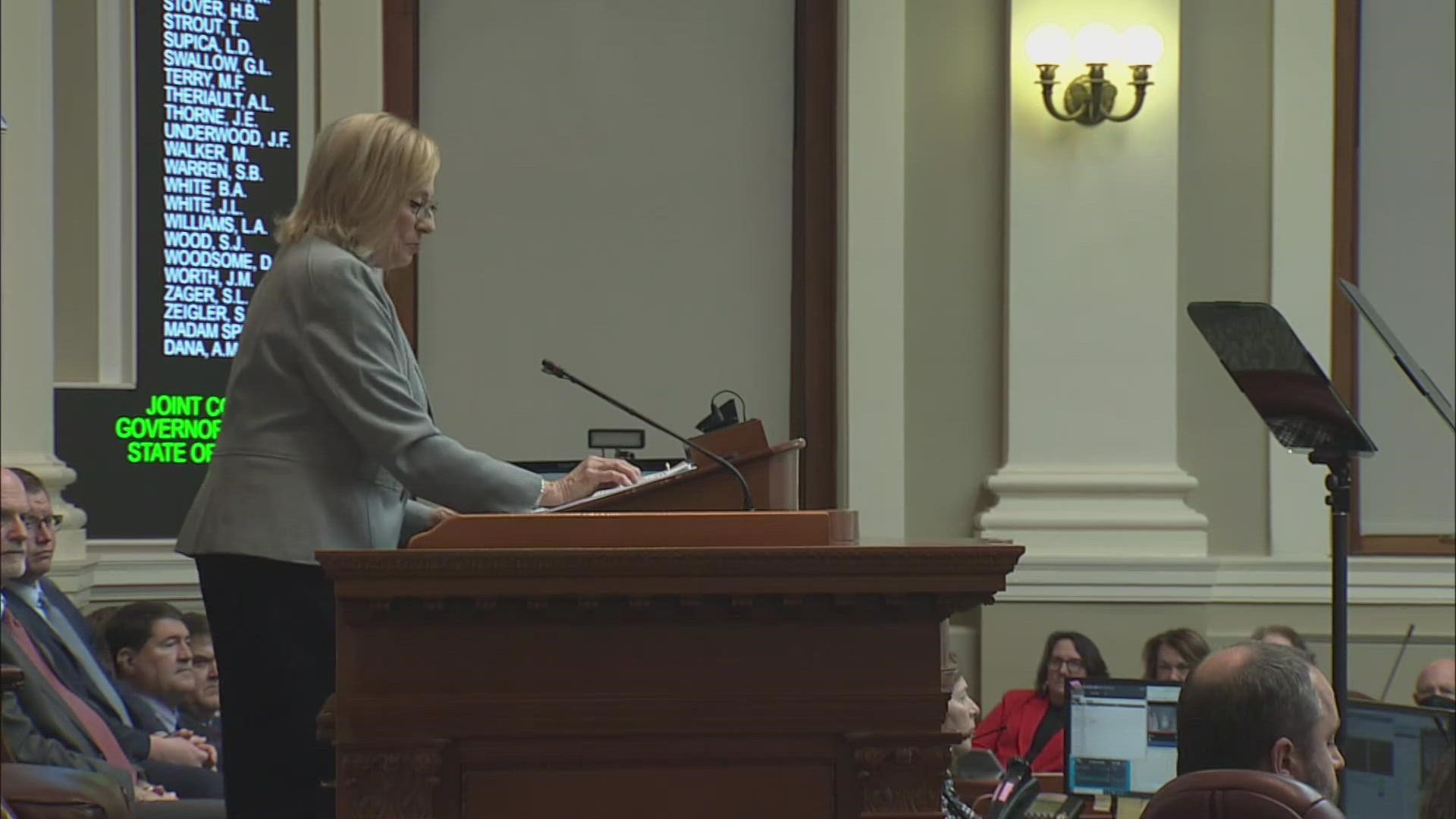AUGUSTA, Maine — Governor Janet Mills stood before the joint members of the Legislature Tuesday night and asked them to fund numerous projects in the next two years.
She devoted significant time in her State of the Budget speech to the ongoing fight against opioid addiction. According to the office of Maine's Attorney General, there were more than 10,000 drug overdoses across the state in 2022. Of those 10,000, more than 700 died. And in 80 percent of those deaths, the non-pharmaceutical form of the drug Fentanyl was involved.
"This work is good; it is important; it is necessary; it is not enough," Mills proclaimed during her address.
In the budget plan she’ll send to the Legislature, Mills wants to increase the inventory of the opioid overdose-reversing drug Naloxone by 25 percent; use opioid settlement funds to double the so-called "OPTIONS" program, which places substance use disorder professionals alongside police when necessary; and invest another $2 million to increase residential treatment beds.
Attorney General Aaron Frey oversees OPTIONS.
"The OPTIONS Program is proving to be highly successful in connecting behavioral health professionals with individuals in need of support with substance use disorder," Frey said in a statement Tuesday. "I am pleased my office can provide opioid settlement dollars to grow this Mills Administration initiative, providing increased access to support, guidance, education and life-preserving Naloxone distribution through OPTIONS liaisons across the state. This program is saving lives."
Mills struck a chord with Republican Senator Marianne Moore, of Calais, who sits on the health and human services committee. She liked what she heard from the governor.
"I was sitting there listening to her speech, and my ears perked up!" Moore smiled.
About beds, though, Moore said they need people just as bad.
"Residential beds for recovery—there's a shortage in the state and she brought that up," she said. "There are beds available. We don’t have the workforce in some cases. It’s kind of a vicious cycle. It’s easy to say, 'I’m gonna fund 140 beds.' However, we’ve got to make sure we have the workforce to be able to cover that."
Mills' entire opioid plan would fall under Health and Human Services Commissioner Jeanne Lambrew. Speaking about all three programs, but beds in particular, Lambrew wants to reach more of Maine.
"Our first round of grants was to a limited part of Maine," she said. "We want to go to the whole state; really get to those areas of the state that we missed."
Each item on the governor's wish list must go before Moore and her colleagues in the legislature before being funded.

